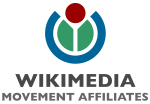WikiFact-Checkers/Overview
WikiFact-Checkers
advocating to bridge content gap in the media space and improving the credibility of information on Wikipedia and the media space using fact-checking tools...
- CH Wikimedia CH
- GB Wikimedia UK
- KR 위키미디어 한국
- RU Викимедиа РУ
- US-NYC Wikimedia New York City
- CAT Amical Wikimedia
- ESP-WE Wikiesfera Grupo de Usuarixs
- H-GAPS H-GAPS User Group
- MK-SK Shared Knowledge
- NGA-HA Hausa Wikimedians User Group
- NGA-IG Igbo Wikimedians User Group
- RU-Don Don Wikimedians User Group
- US-NE New England Wikimedians
- WJ WikiJournal
- WK? Whose Knowledge?
WikiFact-Checkers is a local African initiative working to bridge the information gap that is hindering the wider adoption of Wikipedia in Africa by ensuring the media is an active part of the Wikimedia projects.. We are starting in Africa’s most populous nation, Nigeria, also with a 184-year old media history effectively one of the oldest media histories on the continent. We strongly believe that by closing the wide information gap and promoting wider adoption of Wikipedia use in Nigeria, we will help bridge the wide knowledge gap particularly about Wikipedia content. The goal is to popularise the use of Wikipedia in newsrooms across Africa. The end goal is to ensure that every or at least as many as possible journalists in Africa accepts Wikipedia as not just a reliable information source, but also as the premier information store and repository of our information where everyone across the world can freely have access as our contribution to free knowledge
The dissemination of information is now in a critical stage because of the huge knowledge gap which lack of content is creating and the rate of misinformation and disinformation in the society. The advent of social media has changed the way information is produced, disseminated and consumed. This in turn is affecting the creation of information on Wikipedia.
The world has however changed so drastically in the last several decades and citizen journalism has almost taken over the information ecosystem. This has created a seemingly disoriented and easily misinformed society. It has therefore become imperative to train our media professionals not just about sourcing news and corroborations, but also on how to identify and establish items of misinformation and disinformation from the plethora of news and feature articles in the media for example. For Media practitioners to be able to recognise misinformation and disinformation in the information ecosystem, they must be trained on how to fact-check information using fact-checking tools and techniques. Since Wikipedia is at best a tertiary source of information, but actually more of a bank of information from libraries, these primary and secondary sources of information, any effort to assure the reliability of these sources, invariably contributes to making the content on Wikipedia reliable.
If Wikipedia is to remain reliable as a free open information and educational resource, it must be kept safe from misinformation and disinformation which may have been deliberately or inadvertently published by the media. This is critical because the reliability of information published by the regular media is directly related to the reliability of information on Wikipedia. The knowledge gap which is caused by content deficit is also affecting the representation of Africa on Wikipedia. For us to achieve a reliable encyclopedia we must bridge the content gap and while also improving the reliability of content on Wikipedia.
There is both a knowledge and information gap in Africa and consequentially on Africa in Wikipedia. Minimal interest and very low investment in research for knowledge, largely accounts for the knowledge gap in Africa itself. But the inherent weaknesses of the media industry in Africa and the dearth digital archives account for the huge information gap. This obviously translates to substantial inadequacy of the media and libraries of media products as effective information repositiory, capable of responding acceptably to the lack of reliable media content that will serve as source references for more Wikipedia artices on diverse subjects in Africa?
Objectives
[edit]- To ensure we have enough media professionals across Africa contributing to African content on Wikimedia projects
- To help bridge the gap of content deficit due to a lack of adequate content creation and digitization
- To advocate for content creation by the media professionals
- To improve the credibility of Wikipedia content by using Fact-checking tools
- To improve media and information literacy skills of citizens and Wikipedia editors
- To digitize our un-archived sources for reference on Wikipedia articles
Proposed Activities
[edit]- WikiFact-Checkers training for media professionals
- WikiFact-Checkers features story writing contest for Journalist
- WikiFact-Checkers media and information Literacy training
- WikiFact-Checkers destubbing Wikipedia articles
- WikiFact-Checkers Climate and Environment project
- WikiFact-Checkers yearly workshop
- WikiFact-Checkers yearly conference
- WikiFact- Checkers oral documentation of our Nigerian Biographical documentation
- WikiFact- Checkers Language documentation
- WikiFact-Checkers heritage documentation

